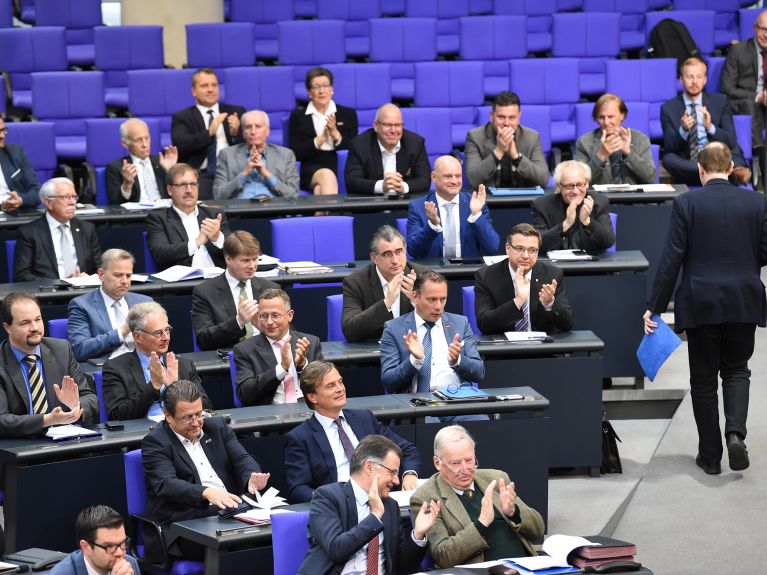Democracy for grown-ups
Live to debate another day – not having easy answers is a liberal asset, not a moral failing.

Jeremiads about the state of liberal democracy and its institutions have been the dissonant theme of 2019. The West as a whole is in decline; NATO is obsolete; once proud and powerful parliaments and congresses have been rendered superfluous.
Autocratic rulers like Russia’s Vladimir Putin, China’s Xi Jinping and North Korea’s Kim Jong-un seize the day while Donald Trump, Boris Johnson and Jair Bolsonaro seem more inclined to emulate their governance than to stand up for the idea – and the practice – of liberty and a pluralistic society.
Racism, resentment and radical right-wing ideas
In Germany, the parties at the center are struggling to deal with the growing appeal of the Alternative for Germany (AfD), which is less a political body than the manifestation of a hodgepodge of racism, resentment and radical right-wing ideas.
The party, barely six years old, has made considerable gains in recent regional elections, finishing second in two states without offering any coherent ideas of how to govern. Their slogans follow the drumbeat of most international far-right movements; they target immigrants and perceived elites while railing against what they refer to as the establishment’s tyranny of political correctness.
And end to all the never-ending debating
The AfD is built on the cult of the strongman, the crude longing for an “authentic” leader able and willing to put an end to the tedious game of politics and all the never-ending debating, negotiating and countervailing.
They want their followers to believe that politics, the ever-muddy practice of true democracy, is practically and morally depraved and should be replaced by the dogged determination of a “chosen one.”
Sure enough, the dualistic conception of politics as either a game of eternally bound-to-fail compromise (played by those driven by the desire to debate another day) or ruling by fiat and forever – is not an autocratic fad of 2019.
The Disappearance of Politics
This dualist view of politics is reflected in Samuel Johnson’s Dictionary of the English Language, published in 1759, which describes politics as “the Science of Government, the art or practice of administering public affairs.” Elsewhere in the dictionary, Johnson describes the politician not as an artist but one who is “cunning” and “a man of artifice.”
The contemporary German philosopher and political scientist Wolfgang Fach takes a modern view of Johnson’s dichotomy. “The contrast couldn’t be greater: there the divine action, here the devilish actors,” he writes in his treatise titled The Disappearance of Politics.
A rather vulgar re-enchantment of the great political idea
Fach denotes the difference as “POLITICS (in all caps, because of its quasi-divine nature), understood as the transcendent care of and for the entirety; on the other hand, common politics, engaged in by self-appointed Machiavellian men, whose thinking is engulfed by immoral haggling without prospects.”
Fach diagnoses this tendency in all people, no matter their political affiliations: we want to believe in POLITICS, yet we despise the rigmarole of politics – and find ever-new ways of forgetting or suppressing the latter, without acknowledging the intertwined nature of the two concepts. We are blinded, Fach notes, by “the magic effect” of the otherworldly promise.
In this vein, countries long proud of their mature democracies, including Germany since 1949, may be said to be witnessing a rather vulgar re-enchantment of the great political idea by a faction of strongmen in the last 10 years. The promise of transcendence through political action is increasingly secularized.
Read the whole text on The German Times website
Lutz Lichtenberger is senior editor of The German Times.
